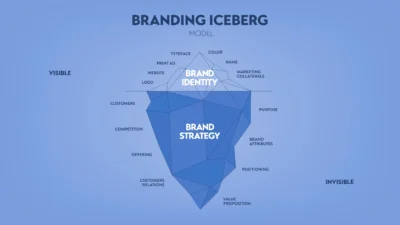At NexGenAI, our experts in digital marketing can assist businesses in creating an online presence for their business. According to research, 97% of people search local businesses online and an incredible 93% use search engines when looking for local products/services online. With our expertise in this area of digital marketing we will assist your company in the process of developing an online presence for success.
Understanding the Importance of an Online Presence
Market Reach
A company’s presence online exponentially broadens their market reach and allows it to connect with potential customers from different regions, creating new opportunities for market entry. Traditional marketing techniques may only reach so far; digital platforms offer brands access to global audiences.
Customer Engagement
Engaging your customers online is essential to building lasting relationships. Social media, websites, and blogs offer platforms where brands can directly interact with their target market to build trust and loyalty among their customer base. Brands who engage actively are more likely to retain these individuals and turn them into brand ambassadors.
Competitive Advantage
To maintain an edge in an increasingly crowded marketplace, having a strong digital presence can give your brand an advantage over rivals. Brands with easy customer access and a strong digital footprint tend to attract and retain more customers. By investing in an all-inclusive digital strategy plan, your business will stay ahead of the competition.
Building an Effective Website Solution
Design and Usability
Your website serves as the first impression for prospective customers of your company, so its design must reflect professional excellence while being easy for users to navigate. Make sure it stands out visually while offering users easy access to what they require.
Search Engine Optimization (SEO)
SEO can be essential to increasing the visibility of your website in search engines. Use keywords with good SEO potential, optimize meta tags properly, and structure your content with headers and subheadings. This will give your website higher rankings in search results.
Content Strategy
Quality content is at the center of any successful site. Establish a strategy for content that engages readers through regular blog posts, articles, and other formats that keep visitors on your website longer and increase the odds that they come back again.
Mobile Responsiveness
A considerable portion of website traffic originates from phones; therefore, it is critical that your site be user-friendly on all mobile devices and offer an enjoyable browsing experience for them all.
Utilizing Social Media Platforms
Platform Selection
There are numerous social platforms, but not all can work equally for your market. Select platforms which best align with what you need to accomplish. LinkedIn works well for B2B marketing, whereas Instagram and Facebook may offer greater potential for B2C interactions.
Consistent Branding
Establish a uniform brand image across all platforms of social media. Utilize similar logos, color schemes, and messages across platforms that will help establish trust with customers while also increasing brand recognition.
Content Calendar
A content calendar allows you to plan out and share updates across all your social networks in a systematic manner, keeping followers engaged while keeping your brand at the forefront of their minds.
Engagement Strategies
Engage with those you follow by responding to their comments, messages, and mentions. Hosting live sessions, Q&As, or interactive posts can deepen engagement further and build the sense of being part of a community.
Implement Search Engine Optimization (SEO) Strategies
Keyword Research
A key step to effective SEO begins with meticulous keyword research. Select keywords your intended customers are searching for and incorporate them seamlessly into the content on your website, using tools such as Google Keyword Planner to help in this endeavor.
On-Page SEO
Optimizing websites to be more visible in search engine results requires using relevant keywords and meta descriptions, while making sure all images have an alt text tag.
Off-Page SEO
Off-page SEO involves activities outside your website’s domain which increase its ranking, such as linking and social media engagement. Achieve high-quality backlinks from trusted sites to have an exponential effect on search engine rankings.
Regular Updates
Search engine optimization (SEO) should not be treated as a one-time effort; you need to regularly update your content in order to stay relevant and current. Search engines favor websites with current, relevant information that is regularly refreshed.
Producing Valuable Content
Content Types
Make sure your content can satisfy the needs of different audiences by diversifying it across a range of media types like infographics, videos, blogs, podcasts, eBooks, etc. This helps to connect with and provide value to them.
Storytelling
Storytelling can be an effective form of content marketing. Use personal stories, customer success tales, and behind-the-scenes glimpses to connect emotionally with your target audience and make your brand more approachable.
User Generated Content
Letting users contribute content relevant to your brand can add credibility and trustworthiness. Reviews, testimonials, or postings on social networks by users add authenticity and establish rapport between consumers and your brand.
Educational Content
Producing educational content will build your expertise and position you as a thought-leader in your field. Create tutorials, how-to guides, and other types of educational materials that help readers overcome issues or make more informed decisions.
Email Marketing Strategies
Growing an Email Subscriber List
Offer incentives like eBook discounts, coupon offers, or other exclusive content in exchange for email subscriptions. Make sure sign-up forms are visible and simple to use.
Personalization
Make your email messages more engaging by personalizing content to meet subscriber preferences and behaviors. Consider including their names when creating personalized email campaigns.
Campaign Types
Email marketing campaigns serve different functions; newsletters keep subscribers informed, promotions increase sales, while transactional emails provide essential details of current transactions.
Analytics
Utilize analytics for email marketing to keep an eye on opening rates, click-through rates, and conversion rates. These metrics will enable you to develop successful email strategies while optimizing future campaigns.
Online Advertising and Paid Media Solutions
Pay-Per-Click (PPC) Campaigns
Pay-Per-Click (PPC) ads can be an efficient and cost-effective way to drive more visitors to your website, with platforms such as Google Ads allowing you to focus on specific terms or demographics.
Social Media Ads
Ads posted to popular social media platforms such as Facebook, Instagram, and LinkedIn will reach their targeted audiences more efficiently by creating engaging ads with eye-catching graphics and captivating copy.
Retargeting
Retargeting ads can help remind customers about your brand even after they have left your website, increasing conversion rates by keeping its name front-of-mind for visitors.
Budget Management
To successfully manage your advertising budget, set clear goals and examine results carefully. Adjust as needed based on the performance of ads to increase return on investment.
Measuring and Analyzing Online Performance
Analytics Tools
Tools such as Google Analytics, SEMrush, and Ahrefs provide invaluable insight into the performance of your website. Use them to monitor traffic levels to your site, visitor behavior, and keyword rankings.
Key Metrics
It is vital that you keep an eye on key metrics, including engagement, traffic, and conversion rate, when assessing the success of online marketing strategies. Understanding these indicators will allow you to measure their impact.
Readjusting Strategies
Analytic data will enable you to identify areas for improvement. Based on results, adjust strategies accordingly in order to continually enhance the quality of your web presence.
Building an Online Community
Forums and Groups
Forming online group forums is a great way to create a sense of community. Join in discussions, share useful content, and offer assistance to fellow group members.
Network with Influencers
Cooperating with influencers can increase your brand’s visibility. Join forces with influencers who share your values and have strong ties to your target customers.
Customer Support
Delivering high-quality customer service via online channels can foster trust and increase loyalty among your customer base. Ensure prompt responses are made when responding to queries and addressing issues efficiently.
Staying Current with Trends and Technologies
Staying Current with Industry Trends
Staying abreast of industry trends will ensure your brand remains relevant. Subscribe to relevant blogs, participate in webinars, and join online forums in order to stay current.
Adjusting to Changes
Digital technology is always evolving; to stay ahead of competitors it’s crucial that businesses remain flexible and adapt quickly to emerging platforms and technologies.
Continuous Learning
Inspire continuous learning among your team members by insisting upon training and development opportunities to keep knowledge and abilities current.
Conclusion
For any business to succeed in the digital era, having an effective online presence is absolutely critical. By following the strategies outlined above, you can increase brand visibility, connect with target audiences, and ultimately boost business growth. We at NexGenAI are here to assist businesses like yours navigate digital marketing challenges effectively; please visit us online at nexgenai.tech for more information or assistance, or contact contact@nexgenai.tech.
Additional Resources
Further Reading
- “The Ultimate Guide to SEO” by Neil Patel
- “Content Marketing for Dummies” by Susan Gunelius
- “The Social Media Bible” by Lon Safko
Tools and Software
- Google Analytics
- SEMrush
- Mailchimp
With these strategies and resources at your disposal, establishing an online presence that drives business is now more achievable than ever. Stay proactive and stay active online to watch your internet footprint expand over time.

